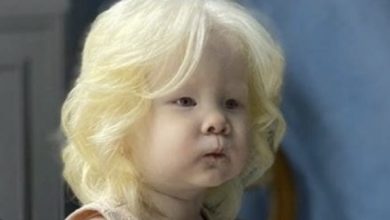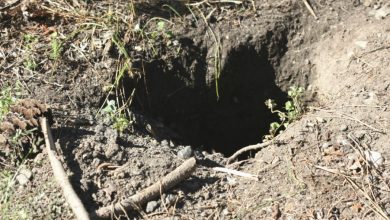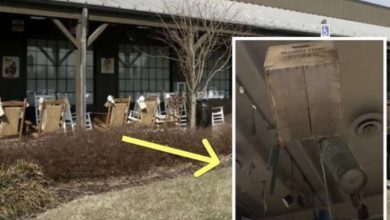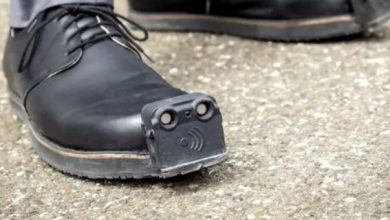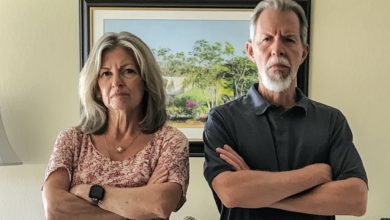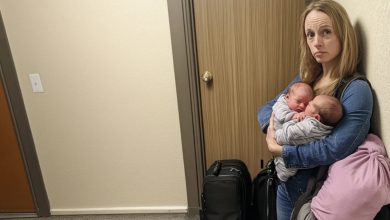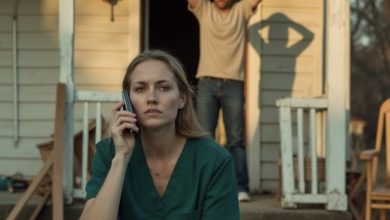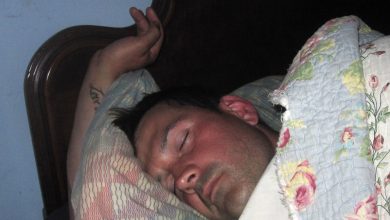He Walked In Unannounced and Found His New Wife Had Abandoned His Triplets in a Downpour
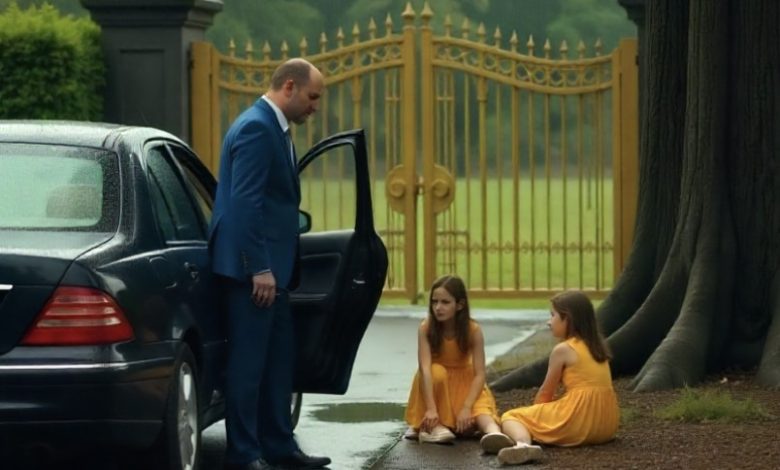
The storm arrived like a punch to the chest—hard, sudden, and loud. Sheets of water slapped the windshield so fiercely the radio might as well have been off. I hunched over the wheel, fingers locked so tight my knuckles turned the color of chalk. The streetlights of our Dawsonville neighborhood were only hazy orbs behind the curtain of rain, and the house that had always meant peace to me showed up as a dark shape against a sky that wouldn’t stop boiling.
That was when I noticed them.
Three small bodies bunched together on the front porch. The sight didn’t make sense for a full second. Then my brain caught up, and fear slammed into me so hard I couldn’t breathe. My triplet daughters—Jasmine, Jade, and Joy—sat on the wet concrete, dresses stuck to their skin, hair glued to their faces, knees muddy, teeth chattering. They were seven but looked smaller that night.
“Daddy! Daddy!” all three cried, thin voices trying to cut through the wind.
I shut off the engine and ran. The rain turned my shirt into a second skin in two steps. “What are you doing out here?” I shouted, crouching to pull them close. “Where’s Laura?”
Jasmine, oldest by a handful of minutes, lifted her face. Her lips were pale. Her eyes were the kind kids get when something has broken that you can’t glue back together. “Daddy, a man is inside,” she whispered. “Laura told us to wait outside and not come back until he left.”
Jade leaned into me and shook her head like the memory stung. “She said if we told you, something bad would happen.”
Joy didn’t speak. She just pressed her face against my neck and sobbed the way small children do—body shaking, fists tight, sound too big for lungs that size.
For a second the world tilted. Laura, my wife. My daughters. A stranger in my home. Fear burned off and left something colder behind—anger that made everything inside me go quiet. “Stay right here,” I said, forcing my voice to be steady. “I’m right inside, and I’m coming right back.”
The front door gave a long, tired creak. Inside, the house was dim and too still, like it was holding its breath. Family photos lined the hallway—smiles, birthday candles, first-day-of-school backpacks. Those frames felt like they were staring at me, daring me to agree that all those moments had meant something. Every step I took clicked hard against the floor, and I could hear my own heart—a fast thud-thud that didn’t belong to the calm man I thought I was.
I pushed open our bedroom door.
Laura was there with a man I’d never seen. Clothes were on the floor. The stranger scrambled for his pants like a movie character who realizes he’s about to die. But I wasn’t looking at him. I was watching Laura. She didn’t flinch. She didn’t cover herself. She rolled her eyes like I’d interrupted her show.
“You’re home early, Robert,” she said, voice flat, almost bored.
The man muttered something that sounded like “sorry” and bolted past me. I didn’t move. I kept my eyes on Laura, because the part of me that wanted to pretend there was some mistake needed proof there wasn’t.
“How long?” I asked. My voice didn’t sound like mine.
She gave a lazy shrug. “You’re never around. I have needs.” She pointed her chin toward the window, where the rain battered the glass. “They’re fine. It’s just water.”
“You put Jasmine, Jade, and Joy outside in that storm so you could do this?” I could hear the edge in my words—sharp enough to cut.
“They know how to stay out of the way,” she said, like we were discussing shoes left in a hallway. “Don’t be dramatic.”
Something in me shut off. I didn’t shout. I didn’t throw anything. It felt like a door clicked closed inside my chest, and the man who used to make excuses for her simply left. “Pack your things,” I said. “You’re done here. You won’t be around my girls again.”
For a flicker of a second, fear passed over her face. Then the look hardened into something mean. “Careful, Robert,” she whispered. “I know things. This family has secrets. I can make a divorce very ugly.”
Her words hung there like a bad smell. I turned away anyway. My daughters were on the porch, shivering under a sky that sounded like it was splitting apart. Nothing about this conversation mattered more than them.
I wrapped the girls in towels. I ran the bath and kept the water warm but not hot. I dropped in a little lavender bubble soap because Joy always said it smelled like “sleep.” I checked fingers, toes, knees. No bruises except old ones from playgrounds. While they soaked, I warmed soup on the stove and called a locksmith. Then I called a friend who was a lawyer and told him this wouldn’t wait till morning.
By the time I tucked them into my bed, Jasmine had finally stopped shaking. She stared at the ceiling like she expected it to fall. “Are we in trouble?” she asked.
“No, baby,” I said. “You did exactly what you should do. You told me.”
Joy curled into my side and whispered, “Are you mad at us?”
I shook my head. “I’m mad at what happened. I’m not mad at you. Not even a little.”
We slept like that, four across—three small bodies and one big one—in a bed that felt too large and too small at the same time. When I woke up, the storm was still going. The girls were wrapped around me like vines around a fence post. The house was quiet. The stranger was gone. Laura was gone too.
The next seventy-two hours were a blur. I filed for an emergency protective order. The police came for a welfare check and wrote a report after they saw our porch camera—the footage of the three little dresses being pushed out the door and told to stay. The judge who read the papers didn’t say much. Her eyes did. She signed the temporary order and set a quickly scheduled hearing.
Laura came out swinging. She hired a loud attorney who called her a “devoted stepmother” and me an “unreliable, traveling workaholic.” She brought photos of the girls at the zoo, at the county fair, at a pumpkin patch—all trips I had planned and paid for. In her version of our life, she was the sun and we were all lucky to bask in it.
But facts don’t shake when you push them. The weather report for that night. The porch-camera video. The text from Jasmine’s school counselor about changes in behavior during the past month. My neighbor’s statement that he’d seen a new car in our driveway several afternoons. The way Jade covered her ears when Laura’s name came up. The way Joy woke from sleep gasping, sure she was outside again in the rain.
I didn’t like court. I didn’t like talking about the worst night of my life in a room filled with strangers. But I told the truth. I said the girls mattered more than my pride. I said I hadn’t seen who Laura was because I wanted the marriage to work. I said I was done wanting that.
The judge awarded me temporary full custody and granted a restraining order that kept Laura away from the house, the school, and any activity the girls attended. When we stepped out into the hallway, Jasmine squeezed my hand hard. “Do we have to see her again?” she asked.
“Not unless a court says so,” I said. “And I’ll do everything I can to make sure they don’t.”
The official papers were only the first mile of a long road. Jasmine started sleeping with a nightlight even though she had turned it off herself for two years. Jade flinched at the sound of a door opening. Joy stopped asking for bedtime stories and instead wanted to sit on my lap while I told her one from memory, the same one over and over about a brave little bird who found her way back to her nest.
We began therapy with a specialist who understood trauma in children. The first session, the girls wouldn’t talk. The second, they cried. The third, Jade said something that broke my heart clean in two: “If we had been faster, maybe she would have let us stay inside.”
The therapist looked at me and shook her head, slow and firm. “We need to replace that thought,” she said, and she taught the girls a sentence to use whenever the old lie pushed in: “What happened wasn’t my fault.”
Money got tight. Lawyers are expensive. So are locks, and camera upgrades, and finding childcare for court days. I sold the boat I hardly used and didn’t miss it. I cut back hours at work and took more projects I could do from home. Sometimes we ate pancakes for dinner because the end of the month arrived before the paycheck did. The girls didn’t mind. We called those nights “breakfast under the moon.”
Laura tried to pull us back into the storm. She popped up in small ways: a text from a new number, a card in the mailbox with only the girls’ names on it, a car idling too long near the school pickup line. Each time, I logged it, called it in, and reminded the girls that grown-ups have rules too. The restraining order did what it was built to do—created a wall that kept her on the other side.
Day by day, our house learned how to be safe again. We built routines like fences. Homework at the kitchen table. Chore charts with stickers. Friday night pizza on the living-room floor with a movie none of us had seen. On sunny Saturdays we went to the park, where Jasmine decided she wanted to try the big climbing wall, Jade brought a notebook to sketch trees, and Joy made friends with a squirrel she named “Captain.”
Sometimes the girls asked the hard questions you can’t dodge. “Why did Laura do that?” “Did we make her mad?” “If she loved us, why didn’t she keep us safe?”
I told the truth in pieces small enough for small hearts: “Grown-ups are supposed to protect kids. She didn’t. That was wrong. That was never your fault.” When they asked if Laura had ever loved them, I said, “I don’t know what she felt. I know what I feel. I love you more than the sky is tall.”
It took months, but school called less. Nightmares came farther apart. Jasmine joined soccer and ran like she was trying to catch the wind itself. Jade asked for a little herb garden, and every morning she went out with a spray bottle and talked to the mint like it was her friend. Joy started a joke journal and made it her job to read one at dinner: “What do you call a bear with no teeth?” she’d say, eyebrows up. “A gummy bear.” We would laugh too hard because the sound felt like medicine.
I also learned how to ask for help. My sister drove up on big-test weeks to make lunches so I could sleep an extra hour. Our neighbor dropped off hand-me-down coats when winter surprised us early. My boss let me move team meetings so I could make therapy appointments. Pride shrank; gratitude grew.
When the final custody hearing arrived, Laura came polished and cold. She spoke about “my girls” like the past year hadn’t happened. Her lawyer talked a lot about second chances and “reunification.” Ours talked about stability, about safety, about a porch in a storm, about three little bodies left in the rain. We didn’t need to make Laura a villain. What she had done spoke loudly enough.
The judge kept custody with me, made the restraining order long-term, and allowed only supervised visits if the girls ever asked for them. They didn’t. On the drive home, Jasmine looked out the window and said, “Does this mean we can stop being scared?” I said, “It means I get to make sure you have less to be scared of.”
Time does what time does. It moved forward.
We built new traditions. On the anniversary of the storm, we went to the lake—not to erase what happened but to write a better story over that date. We fed ducks. We took a goofy photo with our hair sticking straight up from the wind. We named clouds. We bought hot chocolate even though it was still warm outside.
I kept noticing little victories. The first night Jade slept without the nightlight. The morning Joy left her joke journal at home and didn’t panic because she said, “I can remember one.” The game where Jasmine learned how to lose without feeling like it meant something about her worth.
One evening—not a special one, just a Tuesday—we sat on the porch with bowls of ice cream, the kind with too many toppings. The sky cleared to a deep blue that promised a peaceful night, and the old oak tree in the yard held still like it was listening. The girls leaned into each other, legs tangled, spoons clinking. I watched them and felt that quiet, steady warmth the world sometimes gives you after a long winter.
I thought about how close we had come to losing the life we have now. I thought about how a storm can show you what your house is made of, and how a family is something you rebuild with your hands and your promises and your time. I understood, sitting there, that the word “father” was bigger than biology and bigger than a last name. It meant showing up, over and over, especially when the weather turns mean.
The scars from that night never went away completely, and I don’t want them to. They are reminders. They say: you didn’t look away. You believed your daughters. You chose them. And you’ll do it again tomorrow.
When the stars came out, Jasmine pointed to the brightest one and said, “That one is for us.” Jade said, “No, that one is for Daddy.” Joy laughed and said, “There are enough stars for everybody.”
They were right.
We didn’t end up with the tidy life I once imagined—the postcard version with matching smiles and ironed clothes. What we have is better. It’s real. It’s a home where three girls named Jasmine, Jade, and Joy know they are safe, and a father named Robert knows that love, the kind you can stand under in any weather, is not a word you say—it is a thing you do.
And if the sky ever darkens again, I know exactly what I will do: turn on the porch light, open the door, and hold my girls close while the storm rages outside.

